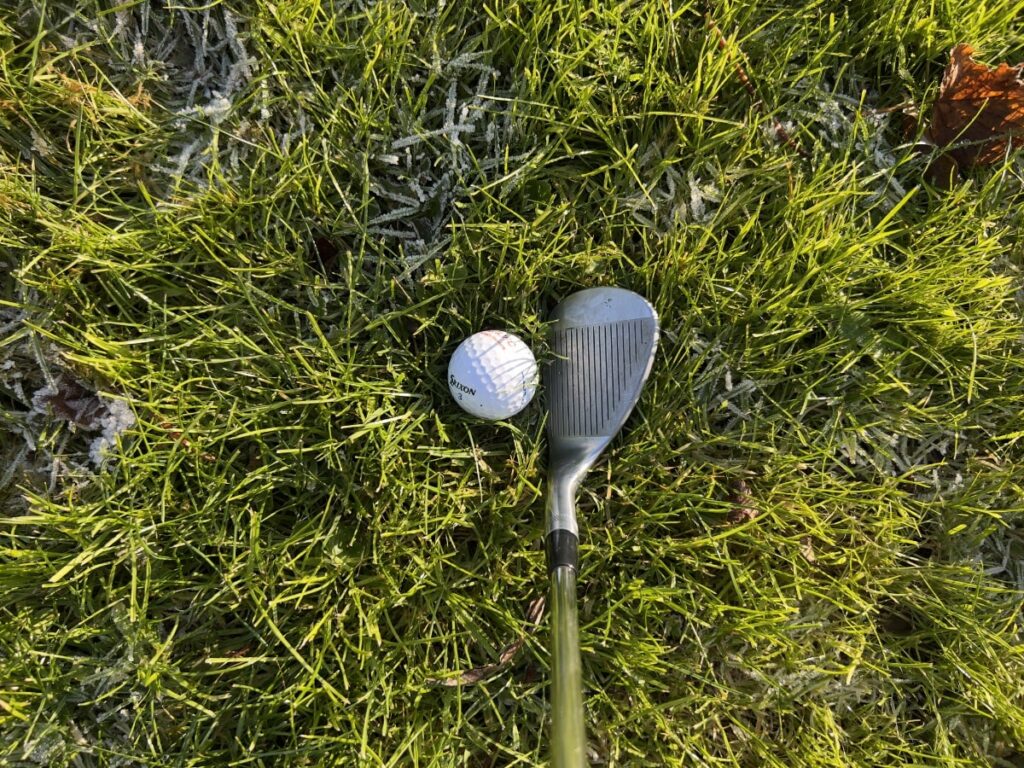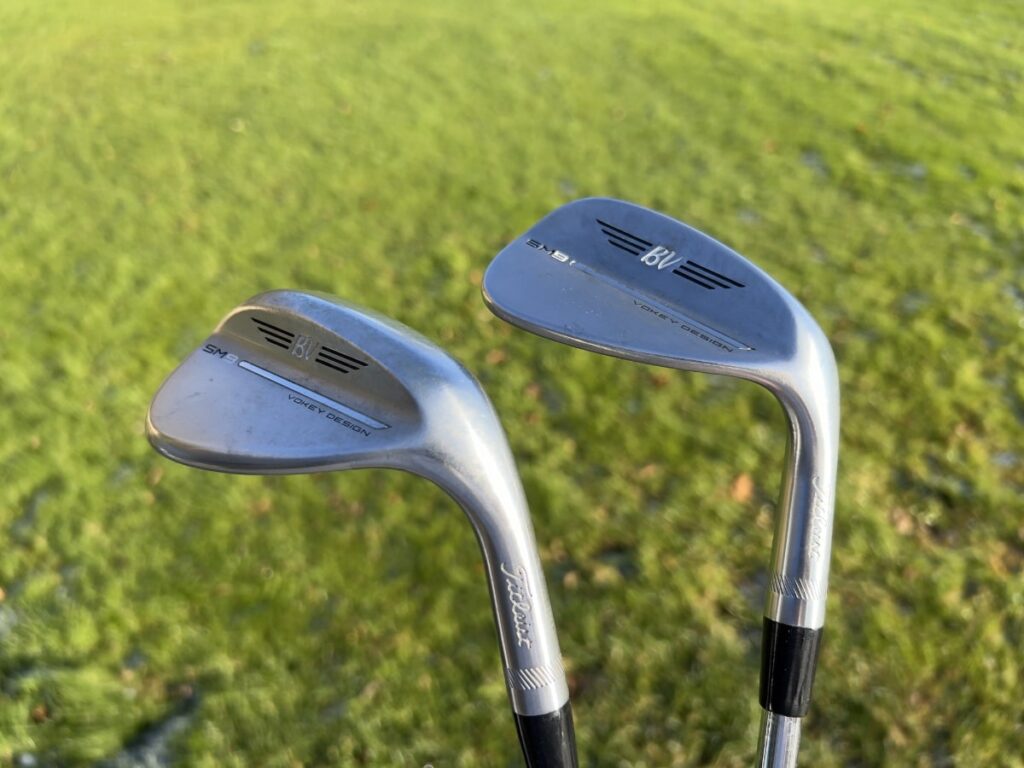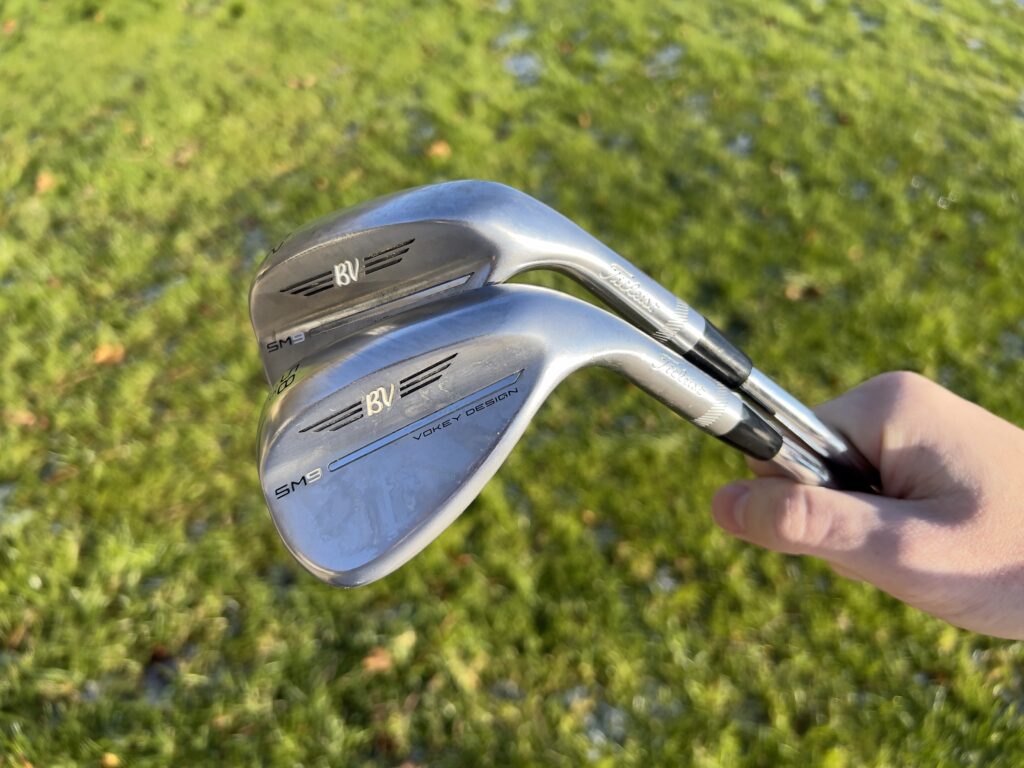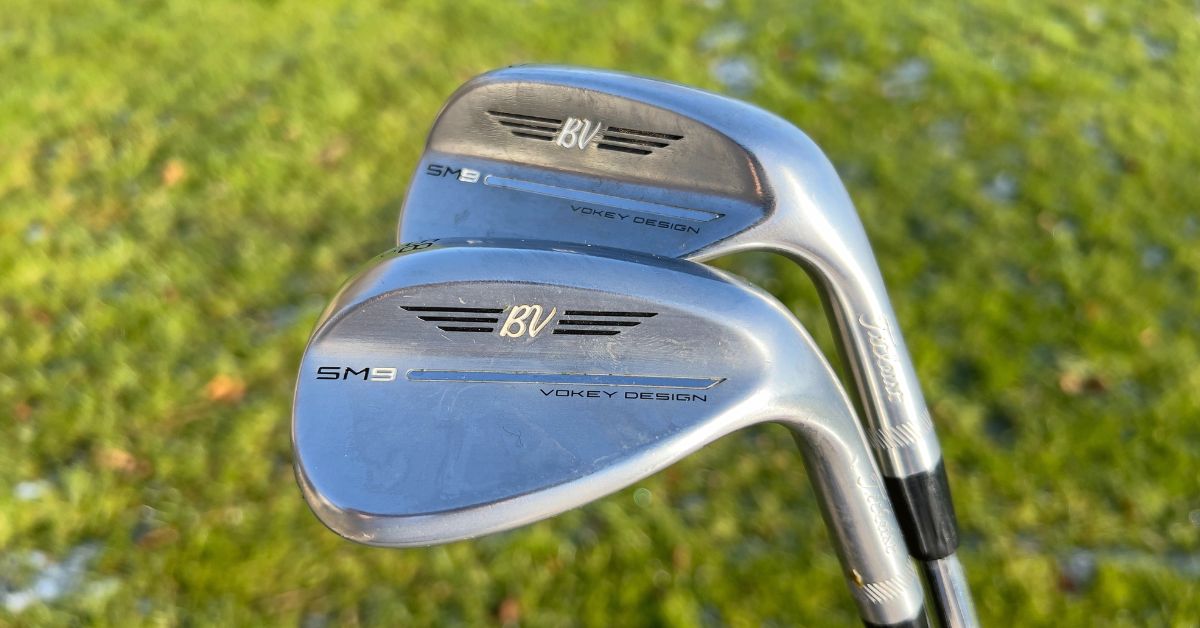Vokey Design—a Titleist brand—has grown to become one of the biggest wedge manufacturers in golf, offering a vast range of grind options to suit a variety of skill levels.
Historically, many golfers have said considered forged clubs better than cast clubs, claiming that they offer “more feel” and make it easier to shape ball flight.
But is this actually true? And subsequently, are Vokey wedges forged or cast?
In this article, you’ll learn how Vokey wedges are made, and whether there is a difference in feel and performance between forged and cast wedges.
Are Vokey Wedges Forged?
Most Vokey wedges are not forged, but cast to allow for more consistency and a faster manufacturing process. Bob Vokey has previously stated that the feel of a wedge is determined by the metal used, not by the process. Nevertheless, Vokey did release a forged wedge in Japan in 2019.

Forged vs Cast Golf Clubs
To begin, let’s compare forged and cast golf clubs. The main difference lies in the manufacturing process, but each method can impact performance on the golf course.
Forged Golf Clubs
Ever since metal—specifically iron—started being used in golf clubs around 1750, forging has been an important process in the production of golf club heads.
Forged golf clubs have a club head that has been milled and pressed from a single block of metal, shaping it into the chosen design.
The process is labor intensive, so forged clubs tend to be more expensive. Also, the forging method is restrictive in terms of the shapes that can be achieved. However, some golfers prefer the feel of a forged club, including a number of tour pros.
In the video below, Chris Voshall demonstrates and explains the processes in Mizuno’s forging factory in Japan:
Cast Golf Clubs
Today, the vast majority of irons and wedges are made via casting—a fairly recent club head manufacturing method first introduced in 1963.
Cast golf clubs are made by pouring molten metal into a mold—or cast. When the metal cools and hardens, it exits the cast in precisely the desired shape.
The repeatable and highly scaleable nature of casting allows manufacturers to be more creative with their designs, at a lower cost. For this reason, entry-level clubs such as cavity-back “game improvement” irons utilize the method.
Pros & Cons
There are various benefits of using either method, as outlined in the table below:
| Forged Clubs | Cast Clubs | |
| Pros | – Some players prefer the feel – Can be easier to shape the ball – Best for experienced golfers | – Large, forgiving sweet spot – Cheaper – Best for beginner golfers |
| Cons | – Small sweet spot – More expensive | – Can sometimes lack in feel |
The following video by Golfbidder gives a useful explanation of the key differences between forged and cast golf clubs, and the benefits of each option.
Are Vokey Wedges Forged or Cast?
So, we’ve explored the differences between forged and cast golf clubs, both in terms of the manufacturing process and performance on the course.
With the generalization that “premium” clubs tend to be forged, and “beginner” clubs are usually cast, it might be surprising to learn that Vokey wedges are cast.
Why Are Vokey Wedges Cast?
Who better to ask than Bob Vokey – the founder himself?
Vokey is arguably the most skillful and widely-known wedge maker in the history of golf, having begun producing golf clubs in his Anaheim garage back in the late 1960s.
In an interview with California Golf News, he was asked the following question:
Many people would be surprised to learn that Vokeys are cast and not forged. What difference do you think this makes to feel and performance?
In response, Vokey said:
“People think we cast our wedges because it’s cheaper. That’s not the case. It’s because of the number of grinds, lofts, bounces that we have available. We start with the Tour and when we find a shape or grind we really like, we’re able to make a tool for it quickly. The casting process is able to replicate the grind much closer than if we forged it.”
Bob Vokey, via California Golf News
For their current range of SM9 wedges, Vokey offers six tour-proven grinds across nine different lofts. So, the casting process enables them to produce each variant with precise detail, while also meeting the demand of tens of thousands of orders.
>> You can order your Vokey SM9 Wedges here

What Makes Vokey Wedges So Good?
Producers of the most played wedges on tour, Vokey Design has grown to become the market leader in the premium golf wedge field due to the following key reasons:
- Accurate performance and quality control
- Wide range of bounce, grind, and loft options
- Brilliant levels of spin and trajectory control
- Excellent aesthetics
Firstly, Vokey wedges are known for their accurate performance and quality control, gaining the valuable trust of thousands of golfers every single day.
Additionally, Vokey offers a broad range of bounce, grind, and loft options, allowing players to dial in a set of wedges based on their unique swing characteristics.
Furthermore, Vokey wedges are proven to generate brilliant levels of spin along with reliable trajectory control—from pitch shots to short chips.
And finally, Vokey wedges have excellent looks. When it comes to wedges, aesthetics are vital for instilling a feeling of confidence when standing over the ball.
The overarching variable in the success of the Vokey brand is its founder and master craftsman—Bob Vokey. The video below illustrates his story:
Where Are Vokey Wedges Made?
The club heads found on Vokey wedges are manufactured in a Titleist facility in China, while the shafts are produced in the USA. Then, the wedges are inspected and assembled in the USA, before being sent out for national and global distribution.
Are Vokey Wedges Forgiving?
Available in 23 different loft and bounce options, Vokey wedges are highly versatile and can be custom-fit for any golfer’s unique swing.
Therefore, amateur golfers who need more forgiveness can spec their Vokey wedges with extra bounce, to prevent the leading edge from digging into the turf.
Conversely, experienced golfers who have more consistency in their swing can choose a spec that fits their shotmaking abilities.
So, Vokey wedges can certainly be considered forgiving—but it’s important to choose the ideal specification for your individual swing.

Conclusion
In summary, the club heads on Vokey wedges are cast, not forged.
The casting process enables them to produce a range of 23 bounce and loft options with a high degree of quality control, at a significant manufacturing scale.
Vokey is considered the market leader in the golf wedge space. They are the most popular wedge on the professional tour, used by the likes of Justin Thomas and Jordan Spieth.


